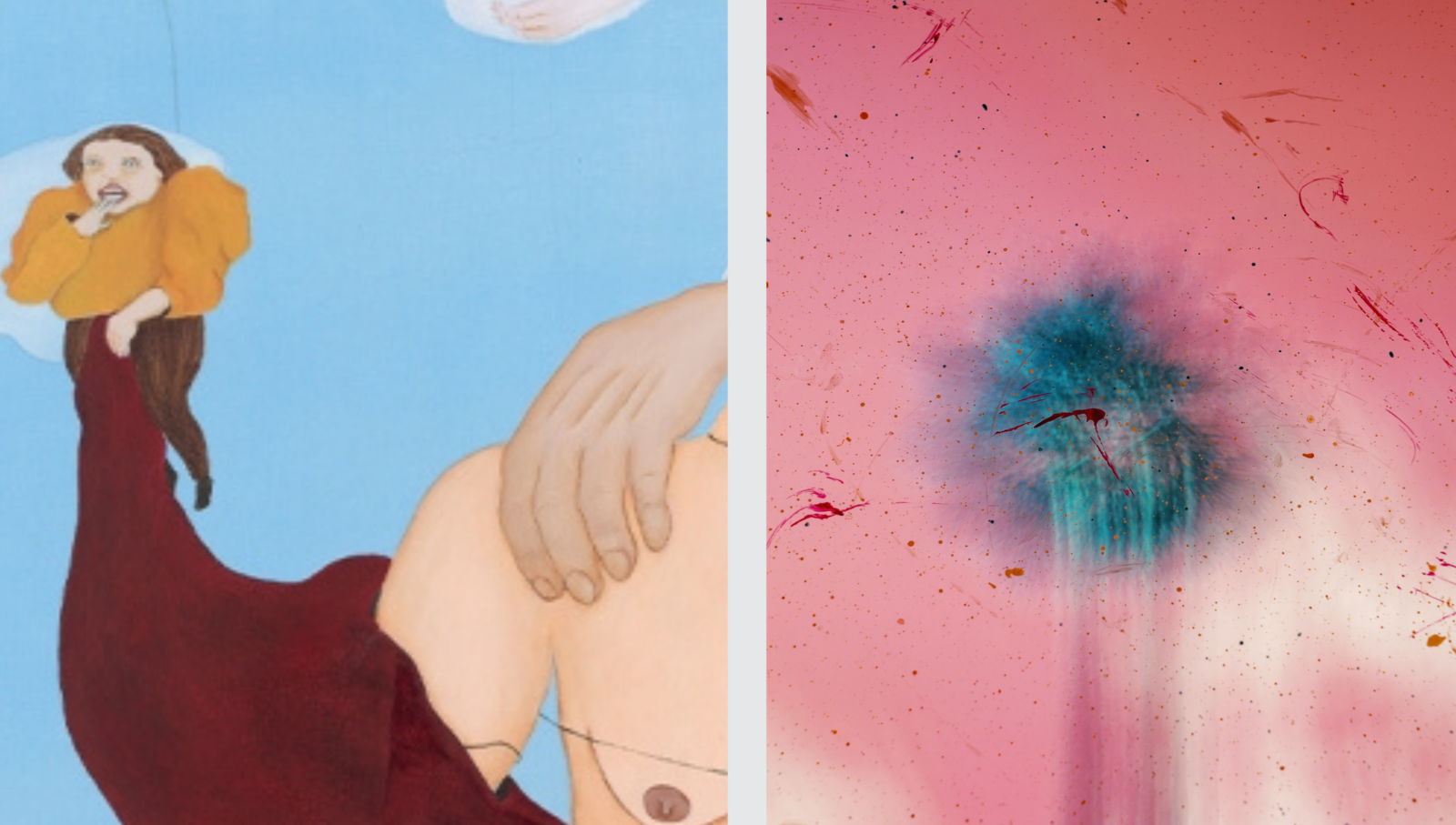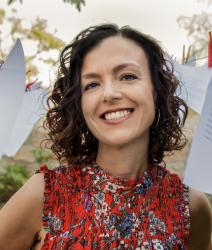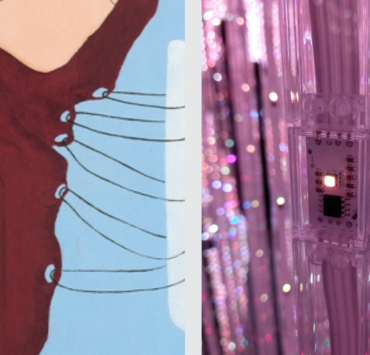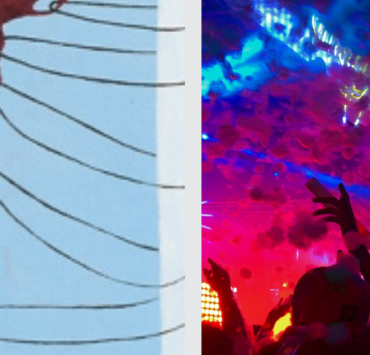
The frayed flag of a contested country that barely covered your sex: the thing woven onto you, the thing you had to accept. Yoko Ono put on stage how you knelt and kept quiet, as small, buffoonish men snipped and snipped. You even provided the dull scissors. Vicuña’s Amaranta holds a thousand invisible folds of what happened before and after. The original painting and your mother no longer exist, but they’ve put in a long-distance call to your daughter, who has begun to hear footfalls behind her as she walks around the block. Cecilia once told me she had to choose between poetry and painting, but she no longer believes this and is recovering what was stolen, rejected, lost. You bequeath to your daughter what was left of the flag, and rejecting its unflattering form, she refashions it into a crop top to show off her midriff. She’s on the verge of something, that beautiful precipice. On Zoom, her music teacher greets the class cheerily before sharing his screen. But instead of a flute lesson, he mistakenly opens the picture of a woman he keeps on his desktop, undressed. “Awkward!” your daughter writes to her friend in the chat. She tells you she can’t remember what she saw, but that doesn’t mean he hasn’t gotten into her head. “Hombres necios”, like bleeding, you are done with them.
Tu hija transforma la bandera en una blusa ombliguera
por Rosa Alcalá ~ Traducción de Kianny N. Antigua
La bandera deshilachada de un país en disputa que apenas cubría tu sexo: lo tejido en ti, lo que tuviste que aceptar. Yoko Ono puso en escena cómo te arrodillaste y te mantuviste callada, mientras hombres pequeños y bufonescos cortaban y cortaban. Incluso proveíste las tijeras desafiladas. La “Amaranta” de Vicuña guarda mil pliegues invisibles de lo que sucedió antes y después. La pintura original y tu madre ya no existen, pero han hecho una llamada de larga distancia a tu hija, que ha comenzado a escuchar pisadas detrás de ella mientras camina por la cuadra. Cecilia una vez me dijo que tuvo que elegir entre la poesía y la pintura, pero que ya no cree en eso y está recuperando lo robado, lo rechazado, lo perdido. Legas a tu hija lo que quedaba de la bandera y, rechazando su forma poco atractiva, ella la convierte en una blusita ombliguera para lucir su vientre. Ella está al borde de algo, ese hermoso precipicio. En Zoom, su profesor de música saluda alegremente a la clase antes de compartir su pantalla. Pero en lugar de una lección de flauta, abre por error la imagen que guarda en su computadora de una mujer, desnuda. “Awkward!”, tu hija le escribe a su amiga en el chat. Ella te dice que no puede recordar lo que vio, pero que eso no significa que él no se le haya metido en la cabeza. “Hombres necios”, como sangrar, ya no aguantas más.
This piece is from our Winter 2021-2022 in-residency series, The Amaranta Project.

Rosa Alcalá is a poet and translator from Paterson, NJ. The New York Times describes her third and most recent book of poetry MyOTHER TONGUE as capturing “the messy emotions and miscommunications that move between languages” and a reminder of “how little precedent there is for honest writing [about mothers and daughters], compared with the epic traditions of fathers and sons.” Her poems and translations have appeared in numerous journals, including Harper’s, The Nation, Poetry, and American Poetry Review, as well as in the anthologies Best American Poetry (Scribner, 2019 & 21. The recipient of a Foundation for Contemporary Arts Grant to Artists, a National Endowment for the Arts Translation Fellowship, and runner-up for a PEN Translation Award, she is the editor and co-translator of New & Selected Poems of Cecilia Vicuña (Kelsey Street Press, 2018). She is currently a Consulting Editor for the University of Chicago Press’ Phoenix Poets Series. Her fourth book of poems, YOU, is forthcoming from Coffee House Press in 2024.






